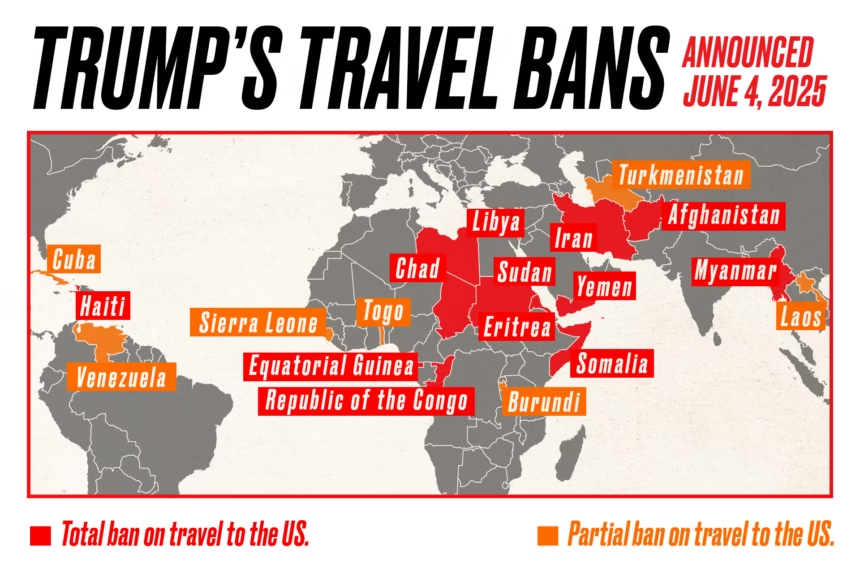Haiti’s Ministry of Foreign Affairs and Worship (MAEC) has expressed deep concern following the June 4 announcement of a U.S. executive order imposing a travel ban on nationals from twelve countries, including Haiti.
In an official statement, the Haitian government acknowledged the measure, which is set to take effect on June 9, 2025. It emphasized the likely impact on Haitian families and pledged to “find a swift solution.”
While recognizing the United States’ sovereign right to determine its foreign policy, the MAEC noted that this decision comes at a time when the Haitian government, in collaboration with international partners, is intensifying efforts to combat insecurity and the growing influence of armed gangs—recently designated as terrorist organizations.
The ministry acknowledged the potentially far-reaching consequences of the measure for many Haitian families both within the country and abroad. It reaffirmed the government’s commitment to pursuing rapid solutions and mitigating the impact of the ban.
While respecting the U.S.’s authority to define its immigration policy, the Haitian government stressed the importance of maintaining bilateral cooperation. It also reaffirmed its commitment to ongoing dialogue under the framework of the Los Angeles Declaration on Migration and Protection, adopted at the 9th Summit of the Americas in 2022.
It is worth noting that starting next Monday, the United States will bar nationals of twelve countries from entering its territory “to protect” the nation, and will impose additional visa restrictions on seven more countries, according to former President Donald Trump. He characterized the move as a revival of a ban he implemented during his first term.
According to the White House, the countries affected by the travel ban include Afghanistan, Myanmar, Chad, the Republic of the Congo, Equatorial Guinea, Eritrea, Haiti, Iran, Libya, Somalia, Sudan, and Yemen. Visa issuance restrictions will also apply to nationals of Burundi, Cuba, Laos, Sierra Leone, Togo, Turkmenistan, and Venezuela.
The U.S. administration, which is pursuing a highly restrictive immigration policy, cited weak administrative capacities to vet travelers and a pattern of visa overstays by nationals from certain countries as justification for the ban.







